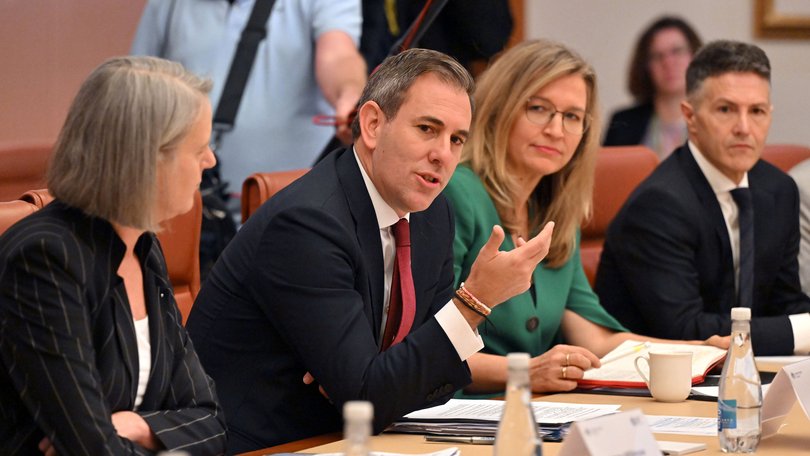EDITORIAL: Economic roundtable done. Now what’s the plan?
EDITORIAL: A challenging road lies ahead as the Government must figure out how to deliver on key outcomes without detrimentally impacting the economy.

After 900 submissions, countless column inches and three days locked in a room with a handful of Australia’s top business leaders, public servants and union bosses, what does Treasurer Jim Chalmers have to show for his economic reform roundtable?
Not a lot — at least in the immediate term.
Dr Chalmers emerged from the Cabinet room on Thursday evening with a list of 10 consensus “reform directions”, many of which were in train long before the sideshow commenced.
Sign up to The Nightly's newsletters.
Get the first look at the digital newspaper, curated daily stories and breaking headlines delivered to your inbox.
By continuing you agree to our Terms and Privacy Policy.They included getting rid of “nuisance” tariffs, building more home faster, and creating a better and fairer tax system.
All of which are commonsense goals no sensible person would argue with.
So has this been the Seinfeld of economic reform — a roundtable about nothing?
The challenge is to figure out how reform can be delivered
That no immediate actions emerged from the event wasn’t a surprise. Dr Chalmers and Prime Minister Anthony Albanese spent the weeks preceding the roundtable talking down expectations for big bang reform.
Still, concerns do remain that the roundtable could be used as political cover for Labor to carry out controversial tax reform for which it does not have an electoral mandate.
That would be a mistake.
Certainly, Dr Chalmers’ comments in the wake of the roundtable which left open the door to changes to further superannuation raids and a company tax overhaul have raised some eyebrows.
Any changes to the taxation regime which create losers should be taken to an election before implementation.
In the meantime, the Government does have a clear mandate to modernise our economy in a way that boosts productivity, puts us back on the path of success we have experienced for many decades as a nation and turns around the decline in living standards endured by Australians in recent years.
In the lead-up to the roundtable, Mr Albanese made the point that governing was the job of government, and not something that would be outsourced to committees.
It’s a fair point. And just as governments shouldn’t blindly follow the lead of committees and roundtables, they shouldn’t succumb to pressures from unions to make productivity killing changes to industrial relations and taxation regimes.
The onus back on Mr Albanese, and his Cabinet to do the work.
Australians are still waiting to hear clearly his Government’s plan to set the economy up for the future, cut unnecessary red tape and regulations and get out of the way so business can flourish again.
These are sensible, centrist positions, but ones which are not always inherent to Labor governments.
The challenge for Dr Chalmers and others in Cabinet is to figure out how they can deliver the outcomes important to them without having a detrimental impact on the economy.
Health Minister Mark Butler’s planned reforms to rescue the NDIS by shifting children with mild to moderate autism and developmental delays off the scheme and onto a new system is a promising signal that it can be done.
